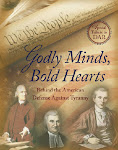

"It [freedom] is a thing of the spirit. Men must be free to worship, to think, to hold opinions, to speak without fear. They must be free to challenge wrong and oppression with the surety of justice." Herbert Hoover
Herbert Clark Hoover (1874-1964), our 31st President (1929-33), was the first President to be born west of the Mississippi River in Iowa. He was orphaned by age ten and sent to live with his Quaker uncle in Oregon whom he later recalled as being "a severe man on the surface, but like all Quakers kindly at the bottom."
At a young age, Hoover proved self-reliant and ambitious. During the day, he worked in the office of his uncle's land company where he excelled in bookkeeping and typing, and at night he attended business school.
When Stanford first opened in 1891, Hoover was there to enroll, majoring in geology. Though his background was comparatively modest, his presence was felt throughout the school. He managed the baseball and football teams, started a laundry, and ran a lecture agency. He was also elected student body treasurer. Stanford is where he met his wife Lou Henry who shared with him a love of geology and the environment.
After graduating, Hoover first worked as a clerk with a San Francisco consulting firm and later found employment with the British mining firm, Bewick, Moering & Co., which sent him to inspect and supervise mines all over the world. While in Australia, he recommended the company buy "Sons of Gwalia" mine, and it later proved to be one of the richest gold mines in history.
In 1899, Hoover and his wife went to China where she soon learned the language. In June of the next year, the Boxer Rebellion broke out while the Hoovers were in Tientsin. For almost a month the settlement was under heavy fire while Hoover helped organize defensive barricades and food supplies, once risking his own life to rescue small children. His wife was kept busy working in the hospita ls.
Between 1907 and 1912, Hoover and his wife translated from Latin Georg Agricola's De re metallica (On the Nature of Metals (Minerals)), a book from year 1556 cataloging the state of the art of mining, refining, and smelting metals. Its clarity of language at 670 pages, 289 woodcuts, with extensive and detailed footnotes of classical references to mining and metals such as the Natural History of Pliny the Elder, historical safety, the history of mining law in England, France, and the German states, as well as safety in mines and known minerals of 1556, the Hoover translation remains and will likely forever be the definitive English translation of Agricola's work.
When Germany declared war on France, Hoover was in London, and the American Consul General asked his help in getting stranded tourists home. In six weeks Hoover organized the return of 120,000 Americans. With Belgium being overrun by the German army, Hoover arranged to get them relief by leading five hundred volunteers to distribute food, clothing, steamship tickets, and cash. He crossed the North Sea forty times seeking to persuade the enemies in Berlin to allow food to reach the war's victims. It was at this time that Hoover made the decision to give up his engineering career and devote the rest of his life to public service.
"From that day forward Hoover never accepted for his private use a dollar in payment for any of his manifold public services. He paid his own travel and out-of-pocket expenses. His salaries as Secretary of Commerce, and then as President, w ent into a special fund for disbursem ent in full for charitable causes, to raise wages of aides who needed it, or to pay for expert personnel not provided by official budgets. Money that came to him for writing or speaking went likewise to private charity and public causes." Eugene Lyons, Hoover Biographer
Grateful for his efforts, the Belgian city of Leuven named a prominent square after him.
When the U.S. entered the war, President Wilson asked Hoover to officially head up food relief efforts whereby Hoover was able to cut consumption of foods needed overseas yet keep the Allies fed and avoid rationing at home. The American Relief Administration, a privately-run organization with headquarters in Washington, became a major emergency agency, ranking far above the others in efficiency and success in feeding more than 350 million starving people in 21 nations in Europe and the Middle East from 1919 to 1921.
Hoover had employed a newly formed Quaker organization, the American Friends Service Committee, for much of the logistical work in Europe. When he extended aid to famine-stricken Communist Russia in 1921, a critic inquired if he was not thus helping Bolshevism. Hoover retorted, "Twenty million people are starving. Whatever their politics, they shall be fed."
After the war, Hoover had become an international hero. Not yet knowing his political leanings, the democratic party was interested in having him become an ally in their party. He, however, announced he was a Republican and supported Warren Harding.
Harding appointed him to a fairly meager postion at the time, Secretary of Commerce. Hoover, famous and well-respected throughout the world, transformed it to the most visible agency of government. It became a most effective service organization, empowered to forge cooperative voluntary partnerships between government and business.
He sought the elimination of waste and the increase of efficiency in business and industry. He aided manufacturing by pioneering standardization of parts, designs, and materials for paper, automobiles, plumbing, carpentry and other industries. He progressively reduced labor losses from trade disputes and seasonal fluctuations, reduced industrial losses from accident and injury, and reduced the amount of crude oil spilled during extraction and shipping. He energetically promoted international trade by opening offices overseas that gave advice and practical help to businessmen. He also promoted the showing of American films overseas.
As the new air transport industry developed, Hoover held a conference on aviation to bring about codes and regulations. His radio conferences brought early organization, development, and regulation of radio broadcasting.
He became president of the American Child Health Organization, and he raised private funds to promote health education in schools and communities. He worked with bankers in producing the new long-term home mortgage, which dramatically stimulated home construction.
As early as 1925, then-Secretary of Commerce Hoover had warned President Coolidge that stock market speculation was reaching too far, and he was concerned for the American economy. Coolidge saw no reason for alarm and continued business as usual for the next two years.
"The [Federal Reserve] Board knew that Mr. Hoover, from 1926 on, had been protesting that the money policy of the Reserve System was certain to bring about disaster and calamity. Mr. Hoover before and after he took office was struggling desperately to curb credit extravagance. ... The record will show that he became the victim of a policy that was anathema to him the whole time it was in operation." Adolph C. Miller, member of the Federal Reserve Board, 1935
In the spring of 1927, the Great Mississippi Flood broke the banks and levees and flooded millions of acres on which people lived. Several governors asked specifically for Hoover's help so President Coolidge sent Hoover to mobilize state and local authorities, militia, army engineers, Coast Guard, and the American Red Cross. With a grant from the Rockefeller Foundation, Hoover set up health units to work in the flooded regions for a year. These workers stamped out malaria, pellagra, and typhoid fever from many areas. Hoover had earned an unparalleled reputation for public service as an engineer, administrator, and humanitarian.
Then in 1927 while on vacation in the Black Hills of South Dakota, Calvin Coolidge gave reporters waiting outside his house a slip of paper which read: “I do not choose to run for President in nineteen-twenty-eight.” He did not give a reason why, nor did he take any questions. It was hard to understand since the economy was still going strong and he was popular.
So began the 1928 election between two gritty, self-made men, each known for their rugged individualism. As it turned out, Hoover won 58% of the popular vote and 444 electoral votes to former governor of NY Al Smith's 87 of the electoral vote. Some attribute Smith's loss to his Catholicism and his desire to repeal prohibition. Some say Hoover won because he came across better on the radio, even though in person he was lacking the color and charisma which Smith possessed. Indeed, Smith had the pizazz and support of such stars as Babe Ruth on his side.
Largely ignored is the fact that Hoover had a far more impressive record in national service and contribution except not so ignored in that his service was acknowledged as radical and that he had an 'alarming desire to issue regulations and to tell businessmen generally how to conduct their affairs." (Franklin D. Roosevelt). Hoover had fed Belgium, run the U.S. Food Administration for Woodrow Wilson, and ministered to victims of the Mississippi River flood. He was the secretary of Commerce and a self-made millionaire who had become known for overseeing humanitarian aid to thousands of starving Europeans during and after World War I.
Having won by a landslide, Hoover remained typically realistic and down to earth, not carried away by his popular endorsement. Still riddled with fear for the economy, he urged the Federal Reserve to halt "crazy and dangerous" gambling on Wall Street by increasing the discount rate the Federal Reserve charged banks for speculative loans. He asked the press to run stories warning of the dangers of rampant speculation. In an almost prophetical way, he told the Christian Science Monitor shortly before he was inaugurated that the American people "expect the impossible of me and should there arise in the land conditions with which the political machinery is unable to cope, I will be the one to suffer."
"My conception of America is a land where men and women may walk in ordered freedom in the independent conduct of their occupations; where they may enjoy the advantages of wealth, not concentrated in the hands of the few but spread through the lives of all; where they build and safeguard their homes, and give to their children the fullest advantages and opportunities of American life; where every man shall be respected in the faith that his conscience and his heart direct him to follow; where a contented and happy people, secure in their liberties, free from poverty and fear, shall have the leisure and impulse to seek a fuller life.
Some may ask where all this may lead beyond mere material progress. It leads to a release of the energies of men and women from the dull drudgery of life to a wider vision and a higher hope. It leads to the opportunity for greater and greater service, not alone from man in our own land, but from our country to the whole world. It leads to an America, healthy in body, healthy in spirit, unfettered, youthful, eager — with a vision searching beyond the farthest horizons, with an open mind, sympathetic and generous."
On 1929's inauguration day, Hoover's address explained that our country's prosperity needed to be spread evenly: "We want to see a nation built of homeowners and farm owners. We want to see more and more of them insured against death and accident, unemployment and old age. We want them all secure." It wasn't long after those words that he implemented action to expand civil service protection throughout the federal establishment, canceled private oil leases on government lands, and directed federal law enforcement officials to clean up Chicago, which lead to the conviction of Al Capone on tax evasion charges. Additionally, his administration secured 5.3 million acres of land for national parks and forests.
He allowed plans for more dams in the Tennessee Valley and California and surged ahead with graduated tax cuts to favor low-income Americans. Hoover also established the Federal Bureau of Prisons and overhauled the Bureau of Indian Affairs to give greater protection to Native Americans. It is said that his Quaker upbringing influenced his views that Native Americans needed to achieve economic self-sufficiency. He chose Senator Charles Curtis, an Indian--as his Vice President. (Curtis was the first and last Indian to hold high national office.)
Hoover proposed a federal Department of Education as well as pensions for Americans over sixty-five. He approved White House conferences on child health/protection and home building/ownership. He signed the Norris-La Guardia Act that limited judicial intervention in labor disputes. Hoover originated what Roosevelt later called the "Good Neighbor Policy" by withdrawing American troops from Nicaragua and Haiti. He and his powerful Secretary of State Henry Stimson formulated the Stimson Doctrine that said the United States would not recognize territories gained by force. Japan's seizure of Manchuria, therefore, was not acknowledged as legitimate. The administration negotiated a treaty authorizing construction of the St. Lawrence Seaway along the U.S.-Canadian border, but it was defeated by an opposing senate.
Before the end of that summer, Hoover had convinced Congress to establish a Federal Farm Board to support farm prices. He created the Veterans Administration and doubled the number of veterans' hospital facilities, established the antitrust division of the Justice Department to prosecute unfair competition, required better service from air mail carriers, and advocated federal loans for urban slum clearance.
Then it happened. The end of October was a shock throughout the country . It showed radio stocks lost 40 percent of their paper value. On black Tuesday, the 29th, sixteen million shares were traded and thirty billion dollars had vanished. Anecdotally, when Hoover realized a friend took his advice to buy a stock that later nose-dived, he later confessed, "To clear myself, I just bought it back and I have never advised anybody since."
Nevertheless, Hoover sprung into quick action. Rather than accept that the country had to suffer cuts in business investment, production, and wages, he summoned industrialists to the White House that November to conference with business, labor, and farm leaders. They agreed to hold the line on wages with Henry Ford promising to actually increase workers' daily pay from six to seven dollars. From the nation's utilities, Hoover won commitments of $1.8 billion in new construction and repairs for 1930. Railroad executives made a similar pledge. Organized labor agreed to withdraw its latest wage demands.
The President ordered federal departments to speed up construction projects. He contacted all forty-eight state governors to make a similar appeal for expanded public works. He went to Congress with a $160 million tax cut, coupled with a doubling of resources for public buildings and dams, highways, and harbors.
So effective was Hoover in those first few weeks, that the New York Times did not judge the crash as the biggest news story of 1929. Instead, they chose Commander Richard Byrd's expedition to the South Pole as most newsworthy. For Hoover, they gave praise, "No one in his place could have done more. Very few of his predecessors could have done as much."
However, production was outstripping demand. Twenty-six million new cars flooded the market. Agriculture, mired in depression for much of the 1920s, was deprived of cash it needed to take part in the consumer revolution. At the same time, the average worker's wages of $1,500 a year failed to keep pace with the spectacular gains in productivity achieved since 1920.
The United States had too many banks, and they played the stock market with depositors' funds or speculated in their own stocks. Government had yet to devise insurance for the jobless or income maintenance for the destitute. With unemployment, buying power vanished overnight. Even though government and business were outspending themselves, it didn't help the economy. Consumers did not buy any more than they had to, and a severe drought ravaged the agricultural heartland beginning in the summer of 1930. Foreign banks went under, draining U.S. wealth and destroying world trade. Unemployment soared from five million in 1930 to more than eleven million in 1931.
As the depression continued on for another decade, Hoover's critics blamed him. They argued that in approving the Smoot-Hawley tariff in the spring of 1930, he effectively raised barriers around U.S. products, worsened the plight of debtor nations, and set off a round of retaliatory measures that crippled global trade. Hoover said the depression continued because of the dislocations brought on by World War I, the rickety structure of American banking, excessive stock speculation, and Congress's refusal to act on many of his proposals.
The Smoot-Hawley act, originated by Senator Smoot (R), Utah, and Representative Hawley (R), Oregon, asked Congress for an increase of tariff rates for agricultural goods and a decrease of rates for industrial goods. Hoover opposed the bill and called it "vicious, extortionate, and obnoxious" because it would undermine the commitment he had pledged to international cooperation. Henry Ford and J.P.Morgan's chief executive Thomas W. Lamont agreed that the bill was asinine and economically stupid. However, the Republican party insisted Hoover sign the bill, and he yielded to their influence.
It turns out, as later events would prove, that Hoover should have followed his own instincts. The international community protested in the best way they knew how with a retaliation begun long before the bill was enacted into law. Boycotts broke out and foreign governments moved to increase rates against American products. Canada imposed new tariffs on 16 key products that the U.S. exported to them. They later also forged closer economic links with the British Commonwealth. France and Britain protested U.S. policy and developed new trade partners.
By the time the next election came around, Hoover was denounced as a do-nothing, and his reputation has never really recovered. Both Smoot and Hawley were defeated for reelection in 1932.
After Hoover was defeated by Roosevelt in the next election, he returned to working on world-wide hunger relief and later helped to plan World War II recovery abroad. In spite of the hatred and denouncement shown him by the liberals, he was still powerful in speech and became a well-spoken critic of the New Deal.
"Every collectivist revolution rides in on a Trojan horse of "Emergency. It was a tactic of Lenin, Hitler and Mussolini... The invasion of New Deal Collectivism was introduced by this same Trojan horse."
Hoover lived another three decades, leading the isolationists in foreign policy and working with his friend President Harry S. Truman to reform the federal bureaucracy. He was appointed chairman of an efficiency commission by President Eisenhower in 1953. Many economies resulted from his commissions' recommendations. Over the years, Hoover wrote many articles and books, one of which he was working on when he died at age 90 in New York City in 1964.
More facts about and quotes by Hoover:
Hoover was one of two American Presidents to give away his salary, JFK being the other.
He anonymously donated $25,000 a year to aid victims of the Depression and raised $500,000 toward the 1930 White House Conference on Child Health and Welfare.
Hoover initiated massive public works projects such as the St. Lawrence Seaway, the Boulder (Hoover) and Grand Coulee Dams, as well as the Mississippi flood control projects.
"My country owes me nothing. It gave me, as it gives every boy and girl, a chance. It gave me schooling, independence of action, opportunity for service and honor. In no other land could a boy from a country village, without inheritance or influential friends, look forward with unbounded hope."
"What the world needs today is a definite, spiritual mobilization of the nations who belive in God against this tide of Red agnosticism. ...And in rejecting an atheistic other world, I am confident that the Almighty God will be with us."
"I am firmly opposed to the government entering into any business the major purpose of which is competition with our citizens... for the Federal Government deliberately to go out to build up and expand... a power and manufacturing business is to break down the initiative and enterprise of the American people; it is the destruction of equality of opportunity amongst our people, it is the negation of the ideals upon which our civilization has been based."
"Liberalism should be found not striving to spread bureaucracy but striving to set bounds to it. True liberalism seeks all legitimate freedom first in the confident belief that without such freedom the pursuit of all other blessings and benefits is vain. That belief is the foundation of all American progress, political as well as economic."
"I come of Quaker stock. My ancestors were persecuted for their beliefs. Here they sought and found religious freedom. By blood and conviction I stand for religious tolerance both in act and in spirit."
"The migration of our forefathers to America was in refuge from the continued regimentation of men and men's minds still frozen by classes, by feudalism, by the churches, and by governments. Liberty was already implicit in their religious beliefs and their spiritual aspirations. Their purpose was to establish it in government." The Challenge to Liberty, 1934, p18
"The difference between dictatorship and democracy is simple: dictators organize from the top down, democracies from the bottom up."
"We in America today are nearer to the final triumph over poverty than ever before in the history of any land."
"If the law is upheld only by government officials, then all law is at an end."
Information researched/collected/organized into biography by K.L.Kraemer
_____________________________________
Defend the cause of the weak and fatherless; maintain the rights of the poor and oppressed. Rescue the weak and needy; deliver them from the hand of the wicked. Psalm 82:3-4
He who oppresses the poor shows contempt for their Maker, but whoever is kind to the needy honors God. Proverbs 14:31
He who is kind to the poor lends to the LORD, and he will reward him for what he has done. Proverbs 19:17
_____________________________________
Defend the cause of the weak and fatherless; maintain the rights of the poor and oppressed. Rescue the weak and needy; deliver them from the hand of the wicked. Psalm 82:3-4
He who oppresses the poor shows contempt for their Maker, but whoever is kind to the needy honors God. Proverbs 14:31
He who is kind to the poor lends to the LORD, and he will reward him for what he has done. Proverbs 19:17
A generous man will himself be blessed, for he shares his food with the poor. Proverbs 22:9
If you spend yourselves in behalf of the hungry and satisfy the needs of the oppressed, then your light will rise in the darkness, and your night will become like the noonday. Isaiah 58:10
If anyone has material possessions and sees his brother in need but has no pity on him, how can the love of God be in him? Dear children, let us not love with words or tongue but with actions and in truth. 1 John 3:17-18





















































































No comments:
Post a Comment